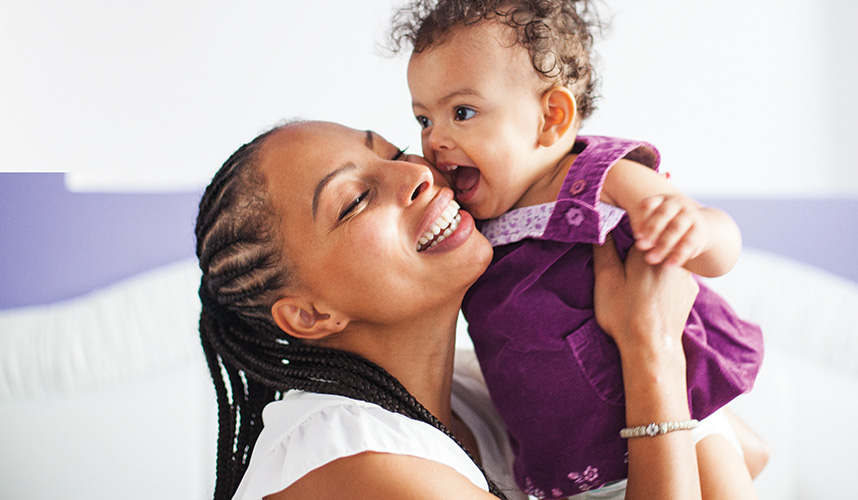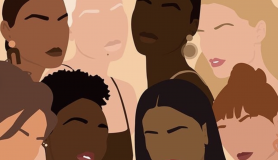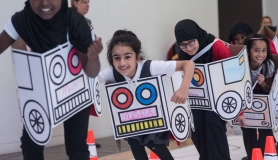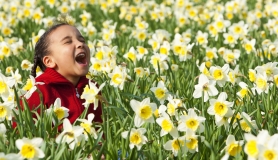In her new book, Liberating Motherhood: Birthing the Purplestockings Movement, former barrister, legal reporter and trade union rep Vanessa Olorenshaw takes a look at motherhood through a feminist lens.
Split into four sections addressing a mother’s body, mind, labour/work and love, the book is an impeccably researched rallying cry against a society focused on getting mothers out of the home into the workplace.
Vanessa, a member of campaign group Mothers At Home Matter, wants us all to see that mothering on our terms can be liberating – and chose the image of “purplestockings” to combine the educated, intellectual “bluestockings” of the 18th century and the women’s liberationists, or “redstockings”.
How did you come to write Liberating Motherhood?
The book has predominantly come out of love for my children. It’s very personal. If it’s anything it’s a love letter to my mother and my children. There’s a lot of me in it. My son is five now, but late on in my maternity leave I knew I didn’t want to go back to my job. I just didn’t want to leave him. It hit me like a truck and there was a lot of surprise from friends and family. In our culture we have to explain ourselves when we make this choice.
I published a version of one chapter as a pamphlet for the general election because I knew the book wouldn’t be out in time and I wanted to contribute to the debate.
There was a lot of discussion from both sides about childcare and family life and I thought “how about lifting up those women who want to be able to spend more time with their children and are thoroughly unfashionable for it?” I used to be a lawyer and that sense of advocacy is part of who I am.
Why is it necessary and who is it aimed at?
When I wrote it I wanted to reach out to mothers and I wrote predominantly for them, but I also had my eye on the policy makers and commentators. I felt they could do with listening to something other than the echo chamber.
It took a lot to write this book. Many people want to convey a similar message but they are busy doing the work, just getting on with it, and our lives aren’t seen or heard.
Politically we are going through austerity, and there is increasing pressure on parents to have two incomes to cover housing, food and so on. Families are under real strain and it’s affecting the mental health of mothers and children.
The first step was when the coalition government removed the universality of child benefit, which had been one of the biggest feminist victories. Eleanor Rathbone campaigned for women to have a personal income to make them less vulnerable. When I look at a lot of women who are at home now they don’t have an income at all.
“Hard-working families” does not include single income families. A family with a single income of £30,000 is taxed £3,000 more than a family where both parents earn £15,000. It seems the answer, politically, is more childcare. Everything is geared towards getting mothers back to work outside the home.
“Families are under real strain and it’s affecting the mental health of mothers and children”
When I speak at conferences I say we all have a common aim to improve people’s wellbeing. We could start looking at things like a three- or four-day working week, or a six-hour working day.
If we don’t want to go down the American route – where they have no paid maternity leave, for example – then we have to do something now.
Women grow babies; we breast feed. Women, mothers, are very powerful but are powerless politically. We are penalised for staying at home and not going back to a job, but also penalised when we get to retirement age, because time out of the workforce is “wasted”.
What’s interesting at the moment is the sandwich generation – the grandmothers who are looking after their grandchildren while their daughters are out at work, and who may also be looking after their own elderly parents.
We are encouraged to look for validation in the public sphere but there is nothing shameful about wanting to care for our children and our families.
What is the most important issue facing mothers today?
The challenges of parenthood and fatherhood are different from those facing mothers. Of course many women are in single sex relationships or are single mothers by choice or compulsion, and we must respect all women in their situations and circumstances. There are also many stay-at-home dads and we definitely need to encourage men to care. We need to recognise our common ground and support each other.
Whatever we do, it seems that a mother’s place is in the wrong. There is an injustice against mothers no matter what choices we make. The biggest issue is having the self-determination to act. A mother who is in poverty and is struggling by – it’s not good for her or good for society. We need to find a way to enable women to be where they want to be.
What would you like people to do when they finish your book?
I would hope that they would encourage other women to read it if they feel they have connected with it. It’s impossible to have a movement on our own. Women who have read it already say they can see themselves on the page. It makes them feel less alone and more confident in their choices. When we feel tired and that we haven’t stopped it’s because we are working really hard. We are not supposed to do this alone. There are a handful of books that have stayed with me, especially if I read them again later as a different person. I want this book to inspire that kind of emotion.
MORE INSPIRATION:
READ: Vanessa blogs at politicsofmothering.wordpress.com
JOIN: Find out more about the campaign to help mothers care for their own children at mothersathomematter.co.uk







